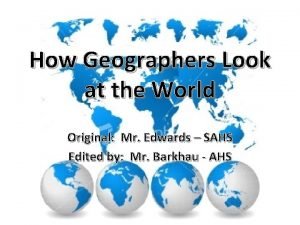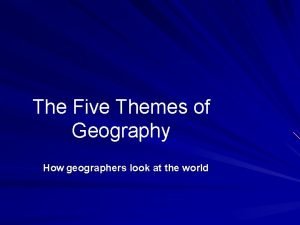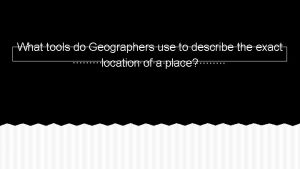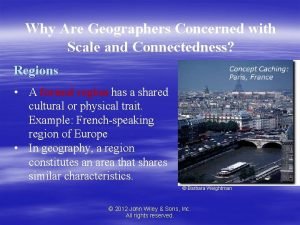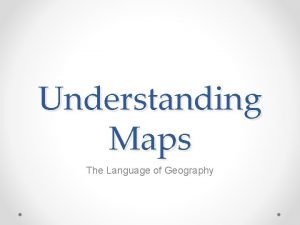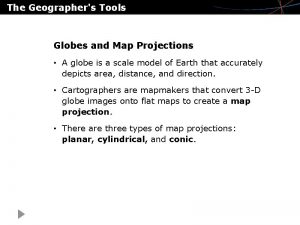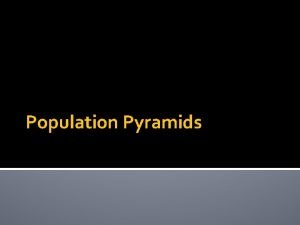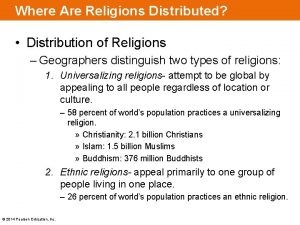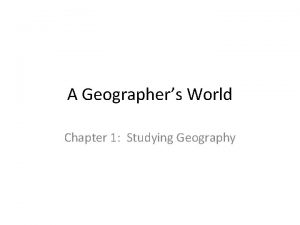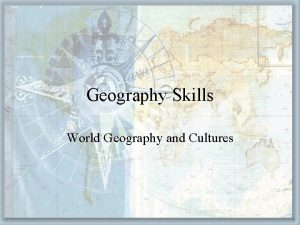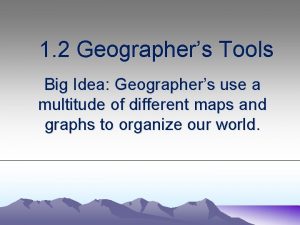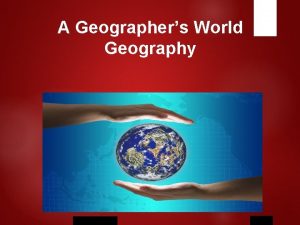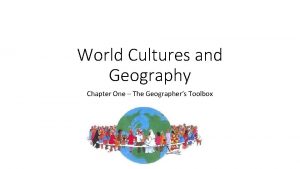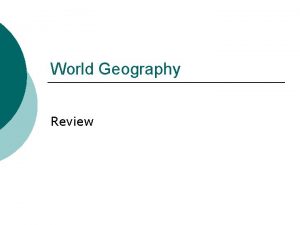What is Geography Geographers Investigate the World Mr








- Slides: 8

What is Geography? Geographers Investigate the World Mr Scully Year 7 Geography

Outcomes for this Lesson Understand the types of skills required of a geographer, and the types of tools they might use. Describe perspectives in citizenship. Discuss the differences in various parts of the world in relation to this.

Geographers are curious people. Their curiosity leads to them asking endless questions such as: Why are pandas disappearing? What is climate change? Why do volcanoes erupt? Why should we recycle waste? What problems do large cities create? How can we make sure everyone has access to safe water? Geographers use problem solving skills and tools to answer key geographical questions about issues from a local scale (in the immediate neighbourhood) to a global scale (affecting the whole world).

Geographical Skills Geographical skills include: locating, gathering and evaluating information from a variety of local sources. Sources include fieldwork, maps, photographs, books, the media and the internet. observing and analysing information choosing and applying appropriate geographical tools presenting and communicating information to others participating as informed and active citizens.

Geographical Tools Geographical tools include: maps fieldwork graphs and statistics photographs.

Perspectives and Citizenship A perspective is a way of viewing the world, the people in it, their relationship to each other, and their relationship to communities and environments. Geography students are asked to imagine what it would be like to see, think, feel or even walk in another person’s shoes when they study issues. For example, the photograph on the next slide shows a child paddling in a river where people bathe, wash clothes, dispose of garbage and urinate. The local community then drinks this water, which leads to water-borne diseases such as cholera.


From one perspective, Australians who have access to a toilet and clean water may be horrified. On the other hand, millions of poor children, living in developing countries without access to a toilet or clean water, have no choice but to perform all these actions in the source of the local drinking water. Their perspective is different. After studying this issue, one of the key geographical questions might require students to suggest what action(s) they as citizens could take to make a better life for this child. These actions could range from a local to a global scale. For example, at a global level, a citizen could become a volunteer for Aus. AID on a project that provides toilets and fresh water to poor people living in developing countries. At a local level, a citizen could donate money to a non-government organisation such as World Vision.
